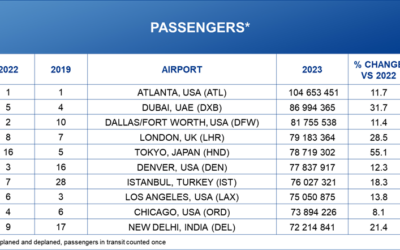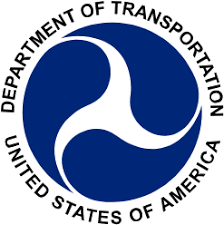Expanding the efforts to gain federal bailout money to aid concessionaires was the centerpiece of the weekly industry call hosted jointly by the Airport Restaurant & Retail Association (ARRA) and the Airport Minority Advisory Council (AMAC).
The two groups made headway recently when they worked with airport trade groups Airports Council International – North America (ACI-NA) and the American Association of Airport Executives (AAAE) and other stakeholders in a joint plea to Congress for federal aid to combat the impact of the COVID-19 pandemic. The groups jointly asked for $10 billion in aid for airports and an additional $3.5 billion for airport concessionaires and other non-airline tenants.
Guest speakers on the Wednesday afternoon call were Lester Sola, director and CEO of the Miami-Dade Aviation Department, and Bill Kirk, partner with lobbying firm K&L Gates.
Kirk made a plea to Sola and to airports in general to expand their work with the concessions industry to address the challenges faced by concessionaires. One of the takeaways from the past four months is that more direct conversation between airport leadership and business owners is needed “so that everybody understands that you’re in a symbiotic relationship,” Kirk said, adding that “actionable data” needs to be presented to Congress to help underscore the need for an aggressive response to the plight unique to the airport industry.
Specific to the Disadvantaged Business Enterprise (DBE) and Airport Concessions Disadvantaged Business Enterprise (ACDBE) programs, Kirk said they will survive but will likely have to shift considerably in light of the new operating environment. He also noted that some of the more general small business programs aren’t applicable to airport businesses, and that the small businesses operating in airports are going to have ongoing challenges with debt, revenue and access to credit.
“It’s going to take all sides [supporting the effort], because these are your partners…,” he said. “We’ve got to find a way to allow them to get through this crisis and get on the other side of this crisis. It may take several months, or it may take more than a year or a couple of years, but that’s one of the things that I think once we get through this initial phase that we need to turn to directly.”
Beyond the federal aid concessionaires are seeking to help pay minimum annual guarantees and percentage rents at airports, they are also looking to tap into small business programs that currently are geared toward “street” businesses. Kirk said ARRA and AMAC have gotten some traction in convincing lawmakers to tweak the programs to fit concessionaire needs, but they need support.
“It would be wonderful if ACI and AAAE would join with us and say, that these are needed to help the businesses survive,” Kirk said. “Rent abatement and MAG [relief] are really just one aspect, but unless they get the capital to weather the storm to refinance their existing debt, it’s going to be trouble.”
Sola outlined Miami International Airport’s (MIA) efforts to alleviate pain for concessionaires. The airport recently extended its elimination of the minimum annual guarantee (MAG) requirements for concessionaires through the end of the year. Concessionaires have the option of keeping their airport locations closed without penalty if they believe they can’t make a profit.
While noting that each airport has unique financial positions, Sola urged airport executives to actively engage the concessions community to find solutions. “You’re going to have to engage your concessionaires, just like you’re going to have to engage your airlines, your rental car agencies, and figure out what components are going to be required in a program in order for businesses to survive,” he said.
Sola also said communication needs to extend to the local, state and national level, so that decision-makers understand the unique pressures facing airport concessionaires. “The issue here is really one of communication and laying down the case of why that aid or assistance is required,” he said.
Looking longer term, Sola acknowledged that the business model of an airport– and by extension the business model for airport-tenant relationships – may change significantly in the coming months.
Action may be needed to aid concessionaires in a different way, “depending on if we’re looking at a quick recovery or, or protracted recovery,” Sola said. “I tend to be an optimist, but we have to be getting ready for those plans” if lagging traffic means whole terminals or portions of terminals remain closed. “How do we adopt a plan that can still give relief – maybe not monetary – but something else that allows for a protracted recovery?” he asks, noting the challenges of keeping concessionaires solvent when certain parts of an airport remain shuttered.
More generally, Sola said MIA remains committed to the partnerships. “If we’re willing to forgo relationships and allow people to fail, then we as a government have failed,” he said. “Our commitment is that we will continue to provide the assistance as long as we can continue to afford to provide the assistance.”






